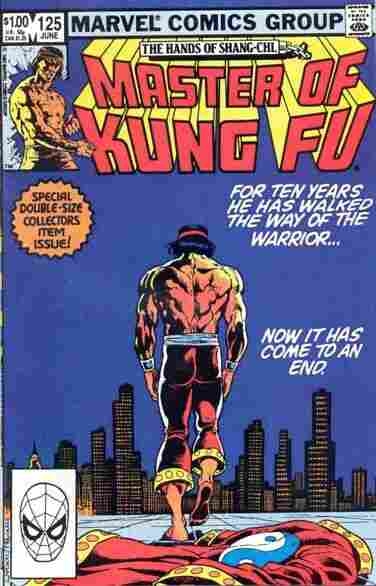
Special Topics: Asian American Literature (ENG 2190, L01)
Department of English,
401 Tier Building, MWF 11:30-12:20
Fall Term 2006
Professor L. Tromly
Office: 615 Fletcher Argue
Telephone: 474-7362
E-mail: tromly@cc.umanitoba.ca
Office Hours: Monday 2:30-3:30 or by appointment.
Course Objectives
This course will approach Asian American
literature as a
cohesive field of literary study composed of distinct literary
traditions
(Chinese American, Filipino American, Japanese American, Korean
American,
etc.). We will examine ways in which the American experience both
demands and
resists different formulations of Asian American identity. Through our
assigned
readings, which range from stark realism to the postmodern, we will
explore the
significance of class, gender, and sexuality to Asian American
identities, and
focus on writers’ reactions to the forces of multiculturalism, cultural
commodification, and globalization. Together we will discuss the ways
Required Texts
Hwang, David Henry. M. Butterfly (Plume)
Keltner, Kim Wong. The
Dim Sum of All Things (
Custom Course Pack
All texts will be available at the University Bookstore.
Method of Evaluation
Quiz 22 Sept. 10%
Response (500-1,000 words) See below 10%
Paper I (1,500 words) 13 Oct. 25%
Paper II (1,500 words) 17 Nov. 25%
In Class Test 6 Dec. 20%
Attendance & Participation --- 10%
Response Papers
Students are required to submit one response paper during the term. Response papers need not be formal academic essays, nor should they merely repeat class lectures. Instead, these should be more casual reactions to course readings and class discussions. Response papers are opportunities to discuss film or mass media or to engage with other cultural, historical, or theoretical issues of relevance (while students are free to write about their own experiences, responses should not be purely biographical). While there is no fixed deadline for response papers, students are encouraged not to wait for the end of term to submit their responses but should hand them in while the issues or questions with which they deal are still fresh.
Attendance &
Participation
Please note that to generate a strong attendance and participation grade students must be in class with the assigned reading done and ready to take an active role in class discussion. Students are advised to consult the Undergraduate Calendar, pg. 27.
Late Penalties
A penalty of 2% will be deducted from late work per weekday late (or a letter grade per week). 2% will be deducted per weekend late. Late work will not be accepted after ten business days. Extenuating circumstances will not be considered without verifiable medical documentation. Please note that assignments submitted over e-mail will not be accepted. If I am not in my office, late papers should be turned in to the English Department office (Fletcher Argue 625). Ask the administrative assistant to date-stamp your paper.
Plagiarism
Plagiarism is a serious academic offence. The 2006-2007 Undergraduate Calendar offers this definition of plagiarism: “To plagiarize is to take ideas or words of another person and pass them off as one’s own…Plagiarism applies to any written work, in traditional or electronic format, as well as orally or verbally presented work” (27). Students are advised to consult the Undergraduate Calendar, pgs. 27-28. We will discuss plagiarism in class, including the serious issue of the plagiarism of Internet content. I urge students to come to me with any questions.
Penalties for
Plagiarism
The common penalty in Arts for plagiarism in a written assignment, test, or examination is F on the paper and F for the course. For the most serious acts of plagiarism, such as the purchase of an essay or cheating on a test or examination, the penalty can also include suspension for a period of up to five years from registration in courses taught in a particular department in Arts or from all courses taught in this Faculty. The Faculty also reserves the right to submit student work that is suspected of being plagiarized to Internet sites designed to detect plagiarism.
Reading List
8 September Introduction
Arrival, Acculturation, Assimilation
11 September A History of Representation: Orientalism, the “Yellow Peril,” and the Model Minority (Handouts)
13 September
Sui
Sin Far, “The Americanizing of
15 September
Hisaye
Yamamoto, “
Gender and Identity: Asian American
Masculinities
18 September Don Lee, “Voir Dire”; Elaine H. Kim, “‘Such Opposite Creatures’: Men and Women in Asian American Literature” (recommended)
20 September Robert Ji-Song Ku, “Leda”; Peter Bacho, “Rico”
22 September Quiz
25 September Puccini, Madame Butterfly (Handouts)
27 September David Henry Hwang, M. Butterfly
29 September M. Butterfly
2 October M. Butterfly
4 October Screening: selections from M. Butterfly (Dir. David Cronenberg)
6 October M. Butterfly (Dir. David Cronenberg)
9 October Thanksgiving (No Class)
Asian American Femininities
11 October Karl Taro Greenfield, “Submission”; Screening: selections from Charlie’s Angels (Dir. McG)
13 October “Submission”; Paper I Due
16 October Maxine Hong Kingston, The Woman Warrior
18 October The Woman Warrior
20 October The Woman Warrior
23 October The Woman Warrior
25 October The Woman Warrior
27 October The Woman Warrior
30 October The Woman Warrior
Are Minor Literatures Always Revolutionary?
1 November
Peter Ho Davies, “The
Deleuze and Guattari, “What is a Minor Literature?” (recommended)
Globalization and Boutique Multiculturalism
3 November Gina Apostal, “Cunanan’s Wake”
8 November Han Ong, “Fiesta of the Damned”
10 November Remembrance Day (No Class)
13 November Kim Wong Keltner, The Dim Sum of All Things
15 November The Dim Sum of All Things
17
November
Screening: selections from
Margaret Cho, I’m the One That I Want;
Paper II Due
20 November The Dim Sum of All Things
22 November The Dim Sum of All Things
24 November The Dim Sum of All Things
27 November The Dim Sum of All Things
29 November Carlos Bulosan, “Be American”; Babylu Abaya, “I Wish I Were Baby Spice”
1 December Gish Jen, “In the American Society”
4 December Class Review
6 December In-Class Test